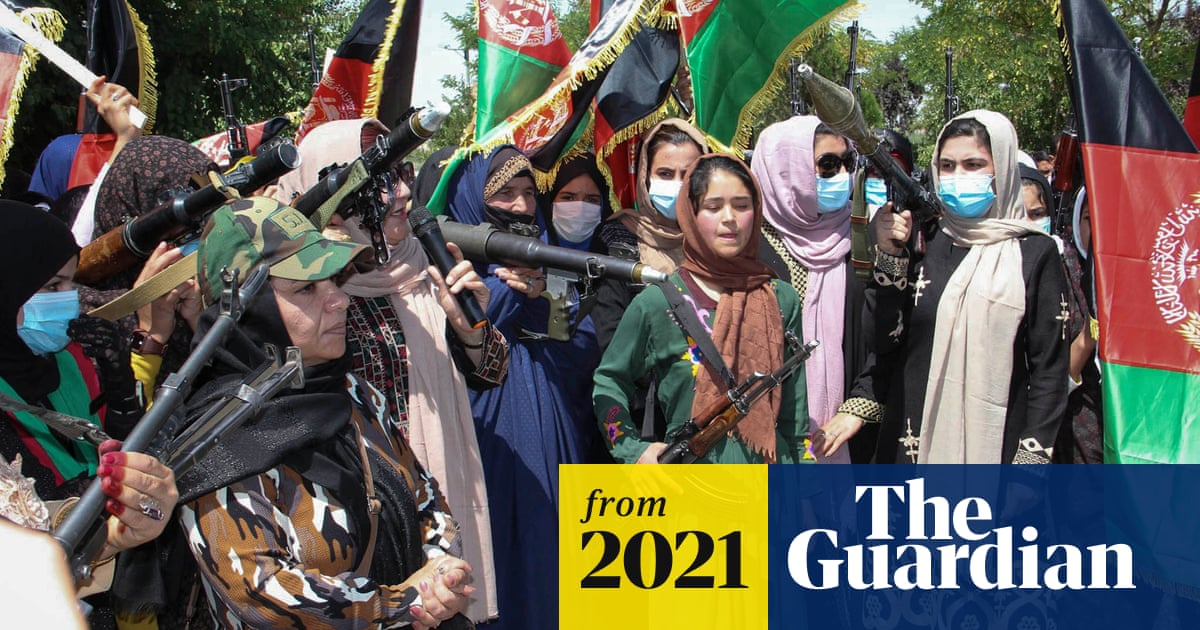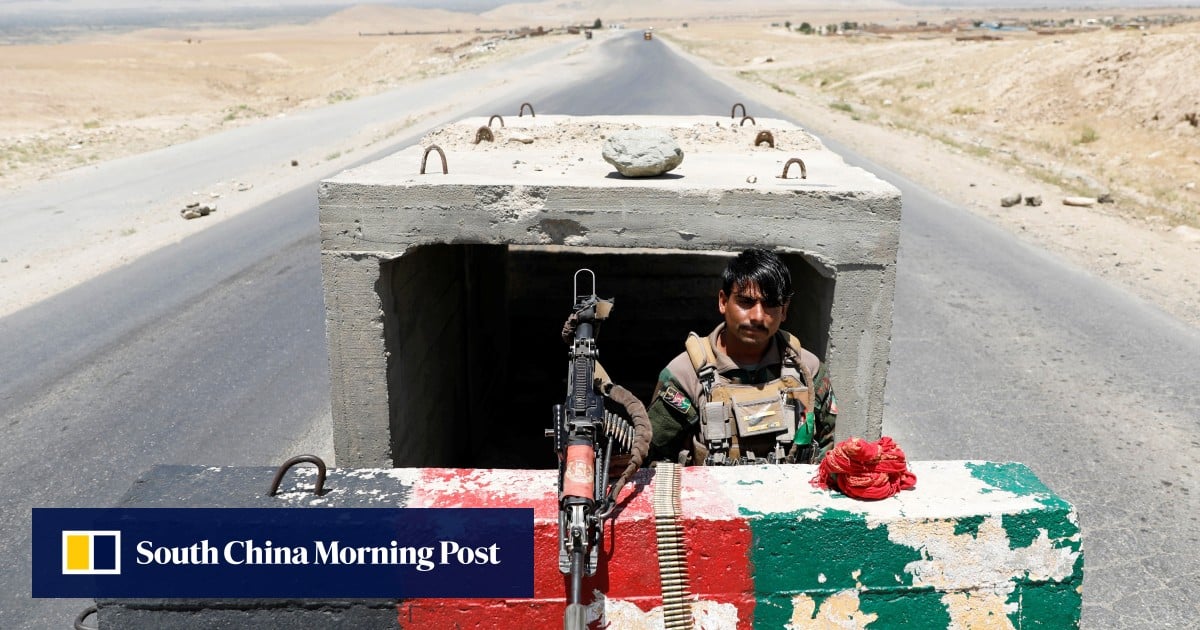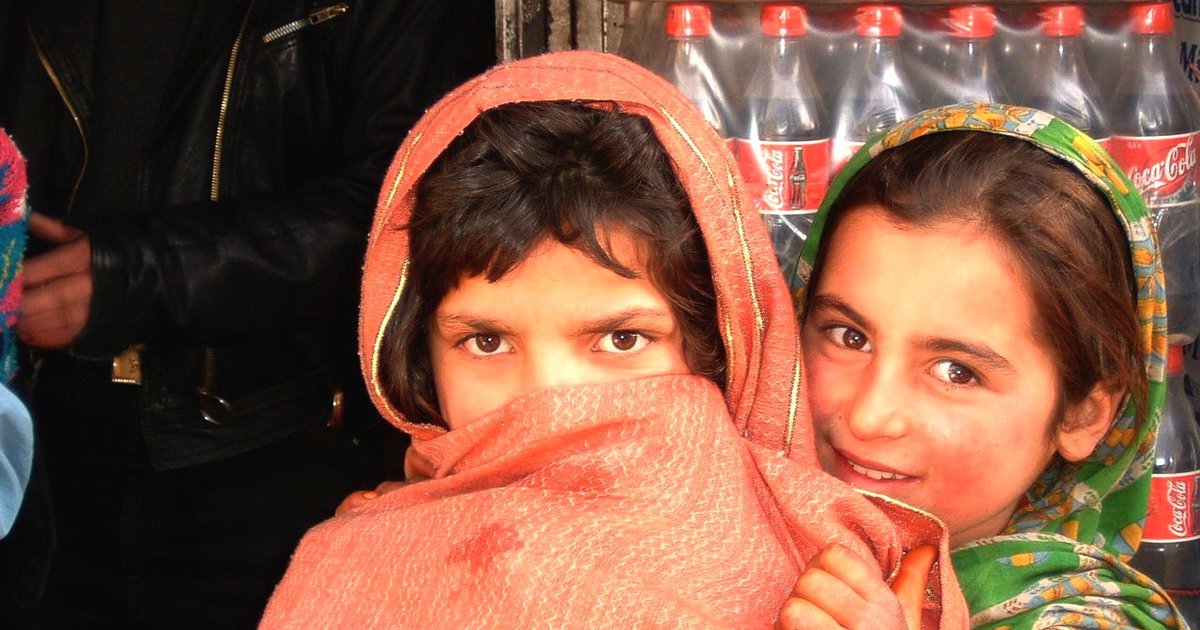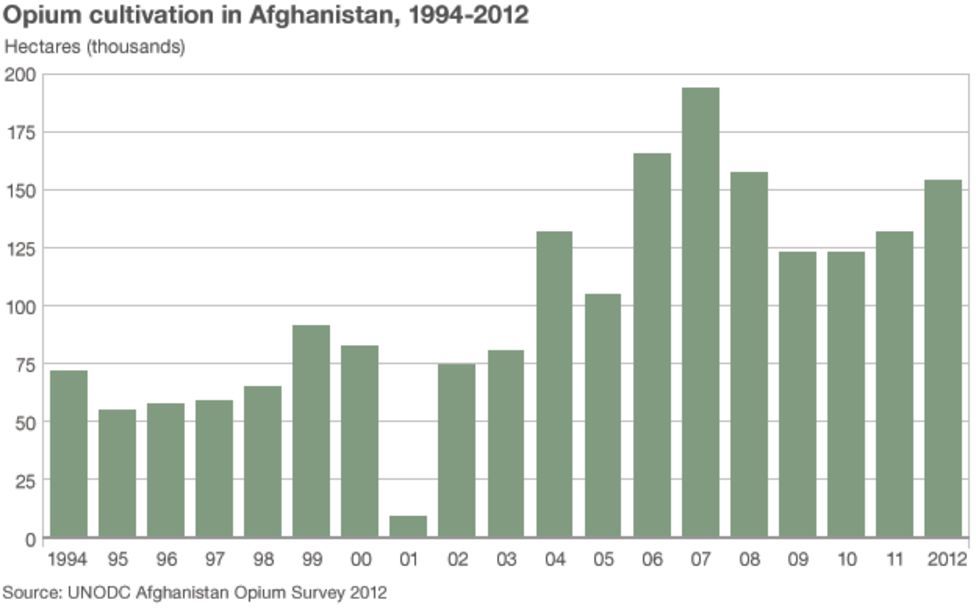Mr. Tea
Let's Talk About Ceps
Good for them!
Armed Afghan women take to streets in show of defiance against Taliban
Women in north and central regions of country stage demonstrations as militants make sweeping gains nationwidewww.theguardian.com
Good for them!
Armed Afghan women take to streets in show of defiance against Taliban
Women in north and central regions of country stage demonstrations as militants make sweeping gains nationwidewww.theguardian.com
/cloudfront-us-east-2.images.arcpublishing.com/reuters/BDHQKN2JHBPIVCLI3INCC4FIGU.jpg)

i guess i think he's pretty powerless, to be honest. within the panjshiri milieu, which is itself one of the most powerful forces in the country, i don't think he's a big player. or even much of a player. i think what we understand as a charismatic figure is not the same as what afghanis think of as a charismatic figure. actually it's hard to think of anyone who has that kind of respect in afghanistan who wasn't the leader of, or high up in, an ethnic militia.What do you make of Massoud Junior, formerly of KCL, now back in Kabul (i think?)?
Apparently he reckons that Afg should be run like Switzerland, hard to know from here whether he has any real power or support though, beyond the reliably clueless western media adulation, but I suppose a charismatic figure might cut through
Thanks, that's kind of what I expected,i guess i think he's pretty powerless, to be honest. within the panjshiri milieu, which is itself one of the most powerful forces in the country, i don't think he's a big player. or even much of a player. i think what we understand as a charismatic figure is not the same as what afghanis think of as a charismatic figure. actually it's hard to think of anyone who has that kind of respect in afghanistan who wasn't the leader of, or high up in, an ethnic militia.
for europeans, especially french people for some reason, the massoud myth runs deep and i guess the only reason massoud jr (i also forget his name) has any visibility is because of that. i know he's involved in trying to do formal politics in afghanistan and i think he might have stood in in 2014 presidential election, but that is just not where power lies.
one interesting thing is that the children of the big players have never really become big players themselves themselves - i think they quite often end up going overseas for education and after eg moving to london or nyc as a big rich young person, who the hell is going to devote their life to amassing military power in afghanistan? better to become a brooklyn fort greene artist, like ghani's daughter did.
massoud jr came into a restaurant i was in once. my friend recognized him and said it was a good idea to leave. someone like that is always going to be a target i guess.
yeah that's exactly what i was getting atits actually one of the biggest intellectual revelations i've had from spending so much time on afghanistan. that basically there are crucial things that you need to understand that you have no way of understanding because they are so well hidden, because there's no investigative journalism, and because there are powerful (afghan) people who understand extremely well that the narrative about what is going on is an important form of power. so trying to understand what the northern commanders are playing at at the moment - there just isn't a way. trying to understand what is going on in the government at the moment - there's not a way. trying to understand what the taliban are trying to do at the moment - there's not a way. it's not a question of resources or not having read everything, and even if you were actually able to hang out one on one with some of the main players, you'd still probably not be able to piece it all together. it's just a hard limit to what can be known, and some of those things are really important for understanding the big picture.
the most plausible theories to me are : 1. that the governement of pakistan wanted to get rid of anyone who might be able to reunify the country, ie it was something strategic or 2. some individual in al qaeda thought for some reason that it was a good idea to kill him, ie it was some random contingent chance, or 3. it was a favour by al qaeda to the taliban, to shore up their shaky relationship. i think number 3 is the most likely myself, but there's not much evidence really, it's all circumstantial. i mean the facts of what happened and how they did it are very clear, the motivations not at all.... & I guess Massoud senior was remarkable in that he did have a profile in the west - probably what got him knocked off
yeah, the way he had a profile was what attracted (basically westernised) al-Q to do him - as often seems to be the case a convergence of different interests and one way or another his fate was sealedthe most plausible theories to me are : 1. that the governement of pakistan wanted to get rid of anyone who might be able to reunify the country, ie it was something strategic or 2. some individual in al qaeda thought for some reason that it was a good idea to kill him, ie it was some random contingent chance, or 3. it was a favour by al qaeda to the taliban, to shore up their shaky relationship. i think number 3 is the most likely myself, but there's not much evidence really, it's all circumstantial. i mean the facts of what happened and how they did it are very clear, the motivations not at all.
this appears to be written by an afghan woman and not entirely negative about the taliban or the future, it's quite vague though, and a couple of years old
Conceptualizing love for peace from below: humane security in Afghanistan
An alternative concept of security is needed based on values of humanity and empathy, a security that is not only ‘human’ but also ‘humane’.www.opendemocracy.net
Some people are adamant the whole thing was about taking control of the global heroin trade after the Taliban banned poppy farming in 2000. Apparently opium production shot up once the US got involved and the same thing's alleged to have happened in Indochina when they got involved in Vietnam,i guess it's interesting too and also depressing whether afghanistan gained anything from being invaded and occupied by the richest nation on the planet

i guess it's interesting too and also depressing whether afghanistan gained anything from being invaded and occupied by the richest nation on the planet - it's still a closed book to outsiders, but maybe there are some KPIs that show some improvements, if we even accept that the KPIs would be relevant in that space
i suppose that if all the relationships were bound into military (or aid) paternalism, now that daddy has taken away the toys, it feels like back to square 1, but maybe the taliban don't see it that way
Some people are adamant the whole thing was about taking control of the global heroin trade after the Taliban banned poppy farming in 2000. Apparently opium production shot up once the US got involved and the same thing's alleged to have happened in Indochina when they got involved in Vietnam,

it's obviously really hard to describe everything that's happened to 30 million people over a period of 20 years and come to a judgement on it. it's certainly beyond me. there have been some improvements in some things, some of those improvements (eg school enrollment) have fallen back quite a lot in recent years, and after the 92-96 civil war and then the Taliban vs northern alliance war from 96-01, the country was pretty destroyed, and so many of the improvements were from a low base. it's also been patchy, has played out differently in different parts of the country. in a lot of rural areas most women for example probably saw more or less no change in their status throughout. overall though, whatever gains there were do seem to be overshadowed by the fact that the NATO and US invasion gave fresh impetus to the conflict, and that has created another 20 years of an increasingly violent war that has touched every part of the country.
one thing of interest is that there was a concerted effort in all periods of the war by the US and the UK (and probably Germany, the Netherlands, France and everyone else who was fighting there, but I don't know much about them) to big up the development successes. including the usual things of exaggerating numbers, flattening out nuance, and so on. this came out of a range of different needs, but included in the US different factions of the various administrations and the foreign policy world needing to make the case to whichever president was on the throne for a continued military presence rather than pulling out, which is the cause which has just lost for the first time in 20 years in the Biden administration. both Obama and Trump faced more or less the same decision, and they both did more or less the same thing.
From a British perspective, they went into Helmand with a totally cavalier attitude and almost no preparation (or appetite) for what they actually faced. This certainly reignited and extended the war there and the Americans basically had to bail them out, from what I understand.
